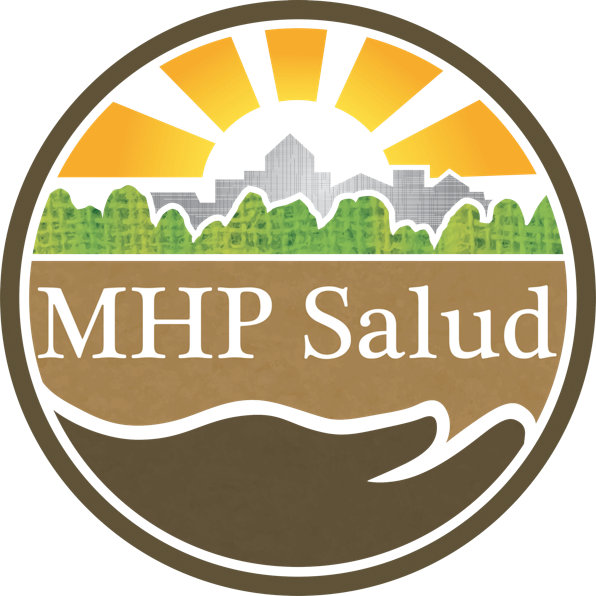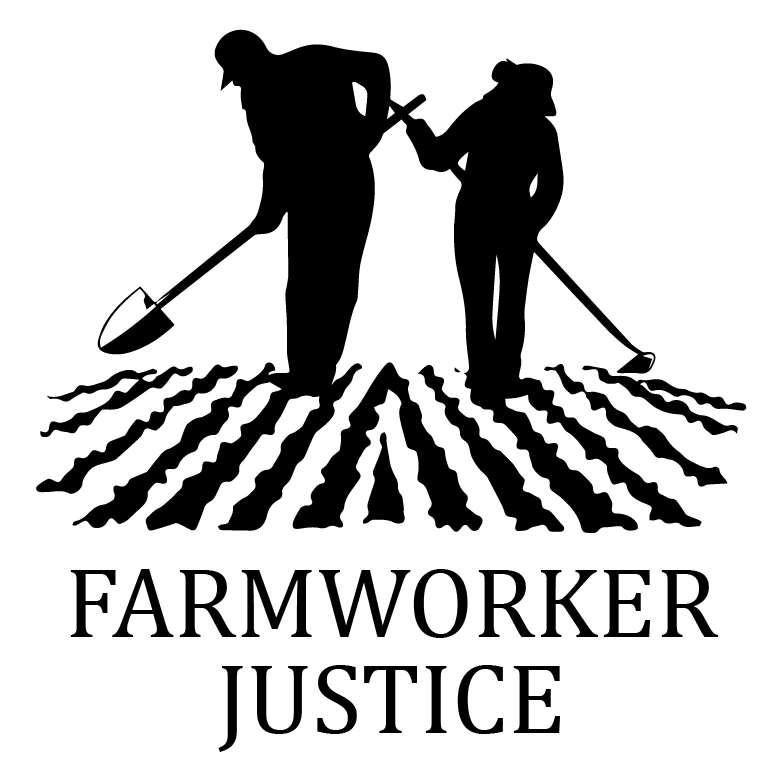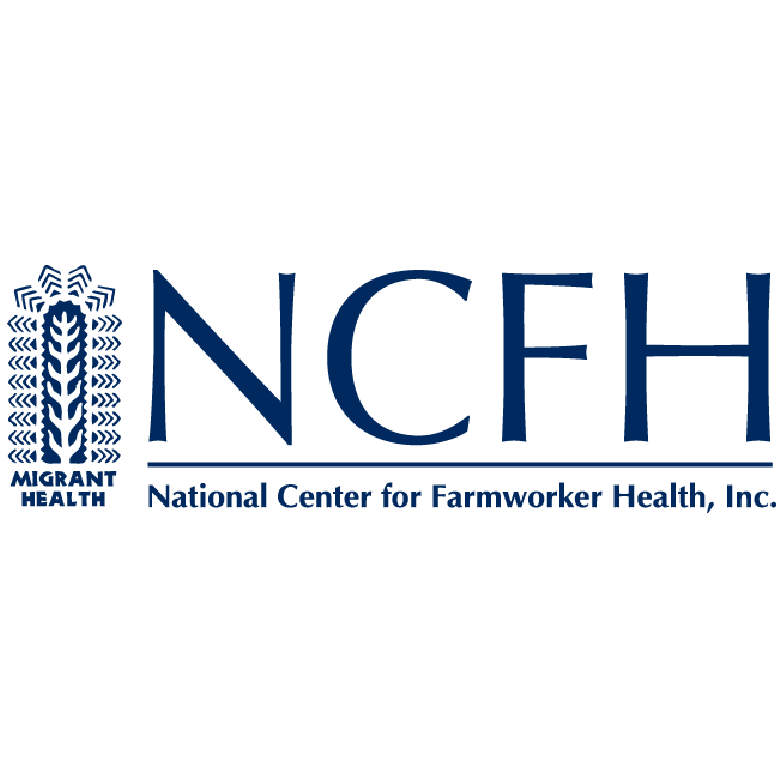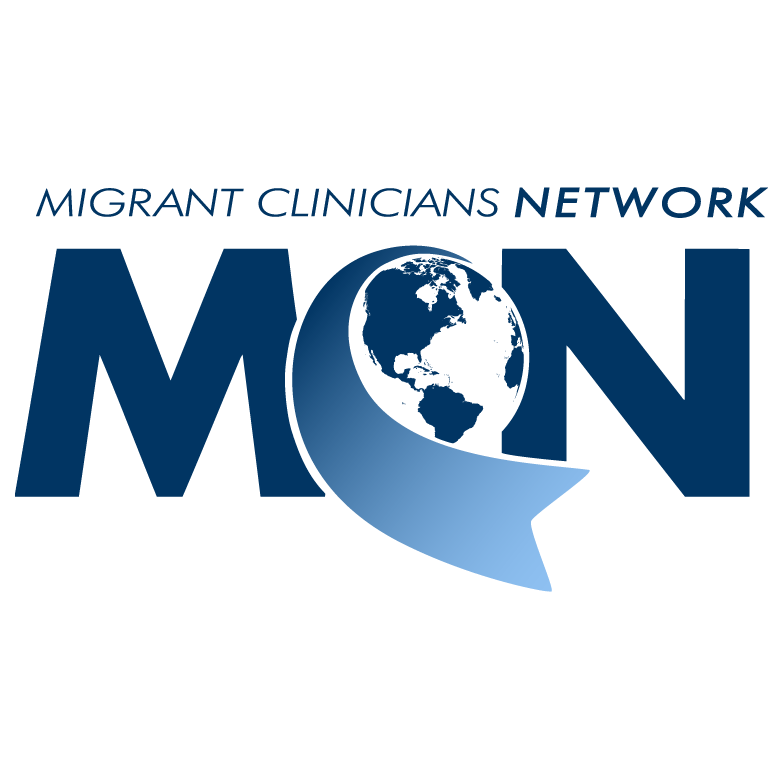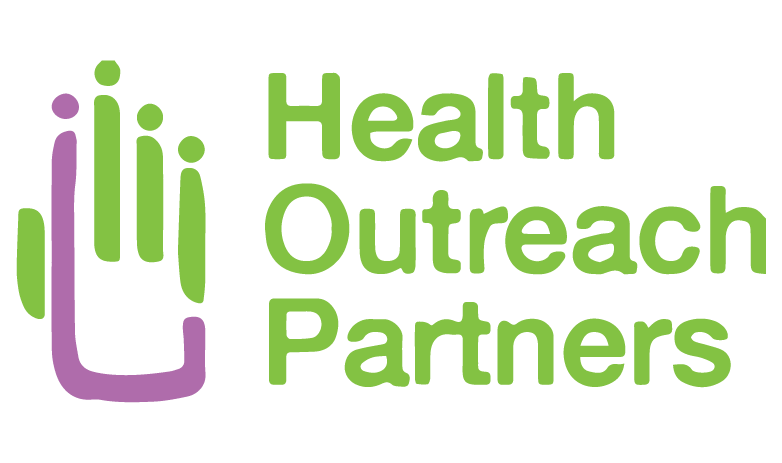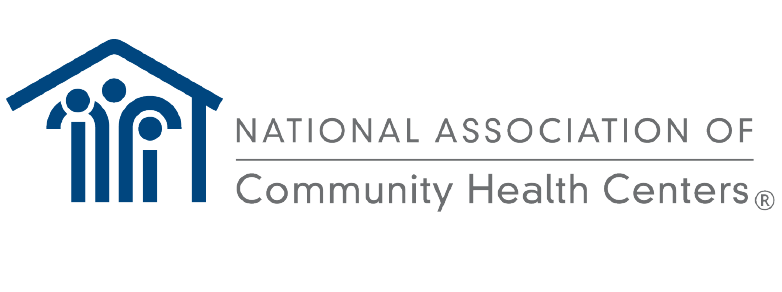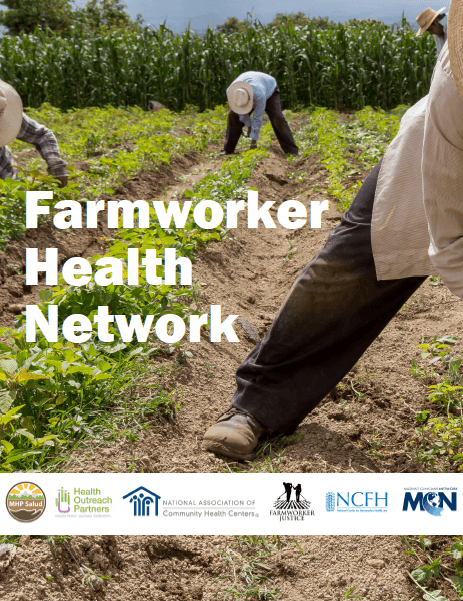Farmworker Health Network (FHN)

Migrant Clinicians Network is a member
of the Farmworker Health Network
The Farmworker Health Network (FHN) is comprised of six National Training and Technical Assistance Partners (NTTAPs) that focus on Migratory and Seasonal Agricultural Worker (MSAW) health and provide coordinated training and technical assistance to health centers that serve this special population. Each organization specializes in areas of focus such as clinical support, outreach services, policy analysis, and program development. The resources below are tools developed by each FHN organization that highlight their areas of expertise and support workforce development within HCs to increase access to healthcare for the MSAW population.
Download the 2024 Key Resources PDF Here
Key Resources for Agricultural Worker Health
MHP Salud
Chronic Disease
MHP Salud’s Chronic Disease resources help health centers, including CHWs, offer education to help individuals reduce complications related to diabetes and other chronic health conditions. MHP Salud’s Providing Diabetes Control Education and Management resource, also available in Spanish, includes a downloadable complete guide and individual guides for eye, oral and foot care. The Chronic Disease Management Tool, available in English and Spanish, can be shared to help patients track key information as they manage their diabetes. The Role of CHWs in Addressing Diabetes illustrates the unique role CHWs have in addressing diabetes self-management and prevention.
Promoting Critical Cancer Screenings
Though MSAWs and Hispanic/Latino populations have higher rates of late-stage colorectal cancer diagnoses – and lower survival rates – than others, they also have lower rates of colorectal cancer screening, which can be a matter of life and death. To help address this pressing issue, MHP Salud’s Colorectal Cancer Screening Tool (which includes a special report and downloadable resource) promotes screenings among MSAW and Hispanic/Latino populations. The report also details the unique role of CHWs in engaging these populations to encourage active screenings.
Mental Health among MSAWs
Though MSAWs struggle with mental health challenges, including depression, anxiety and social isolation, among others (according to MHP Salud’s survey National Migrant and Seasonal Agriculture Workers Mental Health), they also struggle to receive appropriate treatment. As key barriers to treatment included linguistic, economic and structural barriers; lack of cultural competence; and legal status. Additionally, the Guide to Migratory and Seasonal Agricultural Worker Mental Health Equity provides resources, information and tools to address unique mental health needs of MSAWs. To further support MSAWs in mental wellness, MHP Salud developed the Self-Care for Farmworkers Advice from your CHW (available in English and Spanish).
Farmworker Justice (FJ)
Health Care Access
Serving Farmworker Patients Who Speak Indigenous Languages - FJ created this resource for health center staff serving Indigenous farmworker patients to support language accessibility. Developed with interpreters and community members, the resource includes best practices and recommendations to improve the patient experience of Indigenous workers. This resource is available in English and Spanish.
Good Health is for You, Too - FJ created this resource for MSAWs to encourage the use of health center services. The comic book provides basic information about health centers, including cost, eligibility, and services. There is also a space on the back page for health centers to include their local information. This resource is available in English, Spanish, and Haitian Creole.
Diabetes Prevention
Juntos Nos Movemos - FJ partnered with the National Migrant and Seasonal Head Start Collaboration Office to create a curriculum for MSAW families to promote exercise and nutrition. The training-of-trainer curricula is for outreach staff to provide parents with tools to increase their movement and promote healthy eating. The units of the curricula cover movement, healthy eating, micronutrients and macronutrients. The activities and resources were developed with MSAW parents to ensure that they are culturally appropriate and responsive to their questions and concerns. Resources include a recipe book, a card game, and worksheets. The curricula and materials are available in English and Spanish, with some resources also available in Mam and Mixteco.
Health Outreach Partners
Organizational Self-Care
The Organizational Self-Care Assessment Tool provides health center leadership with a tool to assess how the organization integrates and operationalizes self-care practices for healthcare workers, reflects on current strategies, and can help identify gaps or areas for further exploration. The tool can be used to prioritize areas to implement and outline barriers or challenges that may come up. The tool covers Policies and Practices, Employee Supervision and Mentoring, Training and Professional Development, Organizational Leadership and Structure, and Organizational Sustainability. The Organizational Self-Care Resource is a guide to implementing the Assessment Tool and is based on data from a nationwide assessment of best practices that HOP conducted in 2021. It was developed to understand better how self-care is being implemented in the workplace and provides strategies and examples of successful self-care practices. The Organizational Self-Care Assessment Tool Implementation Guide will give health center staff a stepwise process of using the tool, scoring the results, and prioritizing developing strategies based on the findings.
COVID-19
Our podcast, “The Covid-19 Pandemic and What it Taught Us: Collective Trauma and Moving Forward” brought together subject matter experts in areas such as health care, mental health, education, leadership, the disproportionate impact on Black, Indigenous and People of Color (BIPOC) and other communities in conversation with HOP staff to highlight important topics for recovery and resiliency. An additional episode, “Rising Strong: Community Resilience in the Face of Long COVID” focuses on raising awareness and sharing resources about Long COVID. The COVID-19 tipsheet “How Community Health Care Workers Can Maximize COVID-19 Vaccination Outreach Efforts” is a reference tool for clinicians and community health workers (CHWs) that outlines best practices and strategies to address common questions about vaccine hesitancy and misinformation. These resources are helpful for clinic staff and when planning community outreach efforts.
Transportation
The Transportation & Health - Addressing the Health Inequities in Transportation Resource explores the data on the impact of transportation on access to care and other social determinants of health, the unmet needs and gaps in policies affecting transportation and health, underlying disparities predisposing priority populations to poor access to transportation, and recommendations and tested strategies that health centers can employ when addressing patient transportation barriers and developing transportation access programs. The translated version of the factsheet, “Transporte y Salud - Resolviendo las desigualdades de salud por el transporte” provides the same information in Spanish.
Outreach
The Outreach Reference Manual is a comprehensive reference for outreach programs to improve program effectiveness and sustainability, tackling such topics as cultural competency, health education, recruitment and retention, needs assessment, planning, and evaluation. The variety of information included is relevant for outreach staff and everyone working to improve access in the community.
Migrant Clinicians Network (MCN)
Clinical Education in Migrant Health
Education and Training - MCN provides high-quality, accredited continuing education to health care providers serving MSAWs and other priority populations. MCN’s comprehensive clinical education program helps to develop excellence in practice, grow clinical leadership, address emerging issues in clinical care, and disseminate best practice models. To best serve individual needs, MCN has created an array of educational services that can be tailored to clinicians’ unique requirements. Come explore what we have to offer.
Continuity of Care Services for Mobile Patients
Health Network - MCN’s Health Network ensures continuity of care and treatment completion by providing comprehensive services to include medical records transfer, and follow-up services directly to mobile patients with ongoing health needs. Health Network develops relationships with the migratory patient, assists in identifying and enrolling in support services, and utilizes its worldwide network to help these patients get the health care they need regardless of where the patient is moving. Health Network has proven to be an easily modifiable patient navigation system for health centers with application in disease surveillance and treatment management for any number of injuries, illnesses, or care needs among mobile populations with any health care condition.
Clinician Support
Witness to Witness (W2W) - The Witness to Witness (W2W) program at MCN provides psychosocial support to enhance wellbeing and bolster resilience. The program is based on the Witnessing Model developed by Kaethe Weingarten, PhD in the 1990s. The premise of the W2W program is that when we are overexposed to stories of hardship, stress, and trauma we can experience stress ourselves. Whether these stories are told by friends, family members, co-workers, or people we serve, witnessing the pain and suffering of others can take a toll on us physically and emotionally. W2W began as a program that supported clinicians working with MSAWs. Over the years, it has expanded to serve MSAWs and their families directly. MSAWs experience physical stress during work as a result of the pace and strenuousness of farmwork as well as emotional stress from family separations, documentation status concerns, and insecurity of work opportunities.
National Association of Community Health Centers (NACHC)
Governing Board Resources
NACHC’s Health Center Governance Program offers useful and timely governing strategies to empower health center boards as they navigate the complex health care environment. Board member training, online videos and modules, and essential resources are available. Below are sample resources:
National Center for Farmworker Health (NCFH)
Increase Access to Care
The Increase Access to Care (IAC) for Ag Workers Program at NCFH was launched in response to the Ag Worker Access Campaign, to assist health centers in accurately identifying, classifying, and reporting their MSAW worker patients in Uniform Data System (UDS). This comprehensive program now includes a national virtual network of health centers, Health Center-Controlled Networks, and Primary Care Associations working together toward the mutual goal of increasing access to care for MSAWs and their families. These IAC tools are available to support increase access to care efforts, as well as more resources from the Ag Worker Access Campaign Toolbox:
Ag Worker Identification Digital Training Video: designed to assist front desk staff in accurately identifying, registering, and reporting their MSAW patients in the UDS.
Emerging Issues and Resources
NCFH has helped respond to and address concerns related to emerging issues that impact the health of agricultural worker populations through the development of health education materials, health center resources, factsheets, and other digital media products. We have also collaborated with key partners to identify relevant information and curated resources around these emerging issues including:
- Infectious and Vector Borne Disease (H5N1, Flu, etc.)
- Diabetes Prevention and Management (Diabetes, Heart Disease, etc.)
- Sexual Health (STIs, HIV, etc.)
- Language Access (CLAS, Indigenous populations, etc.)
- Mental Health (Depression, Anxiety, etc.)
- Emergency Preparedness (Climate Change, Wildfires, etc.)
- Social Drivers of Health (Health Equity, Transportation, etc.)
Governance Tools
NCFH’s commitment to board development for Migrant Health Centers has been an important component of our work for years, especially in increasing the recruitment, orientation, and successful integration of MSAW patients into health center boards. These Governance resources are available on our Health Center Toolbox to support board training and leadership development:
- Key Online Resources for Training Health Center Board Members: provides guidance to health centers on incorporating online learning into board governance training plans.
- Spanish E-Learning Governance Modules and Discussion Guides on Financial Oversight: translated low-literacy Spanish modules from NCFH, in collaboration with NACHC, for board training designed to address the board’s role in financial oversight, key financial statements, and key financial performance indicators typically monitored by health center boards (also available in English).
- Board Short Video Modules and Discussion Guides (under Governance and Leadership tab of Health Center Toolbox): translated low-literacy Spanish short video modules from NCFH, in collaboration with NACHC, designed to address a health center’s board roles, key components of strategic planning, and the fundamentals of the Sliding Fee Discount Program (also available in English).
